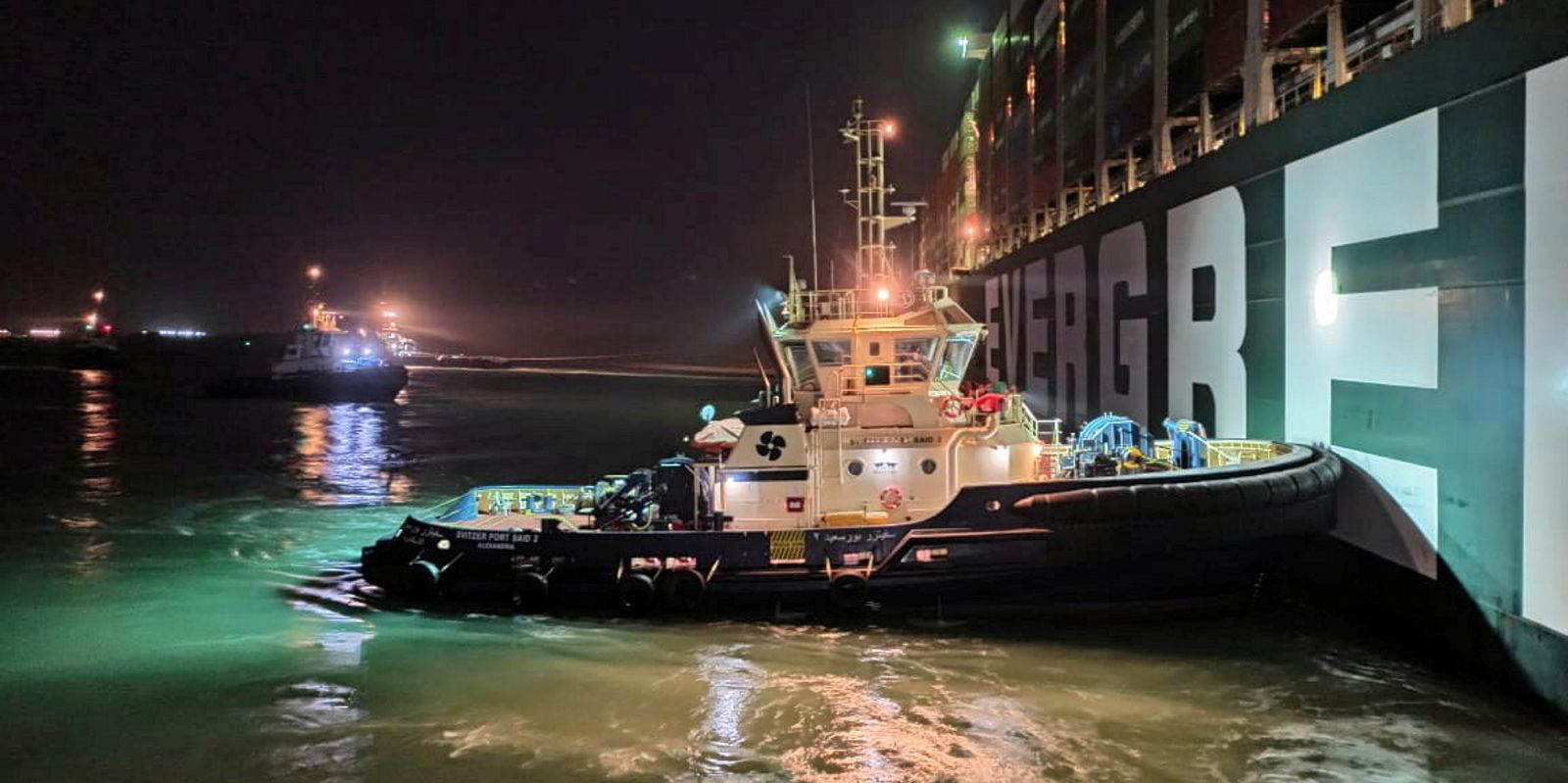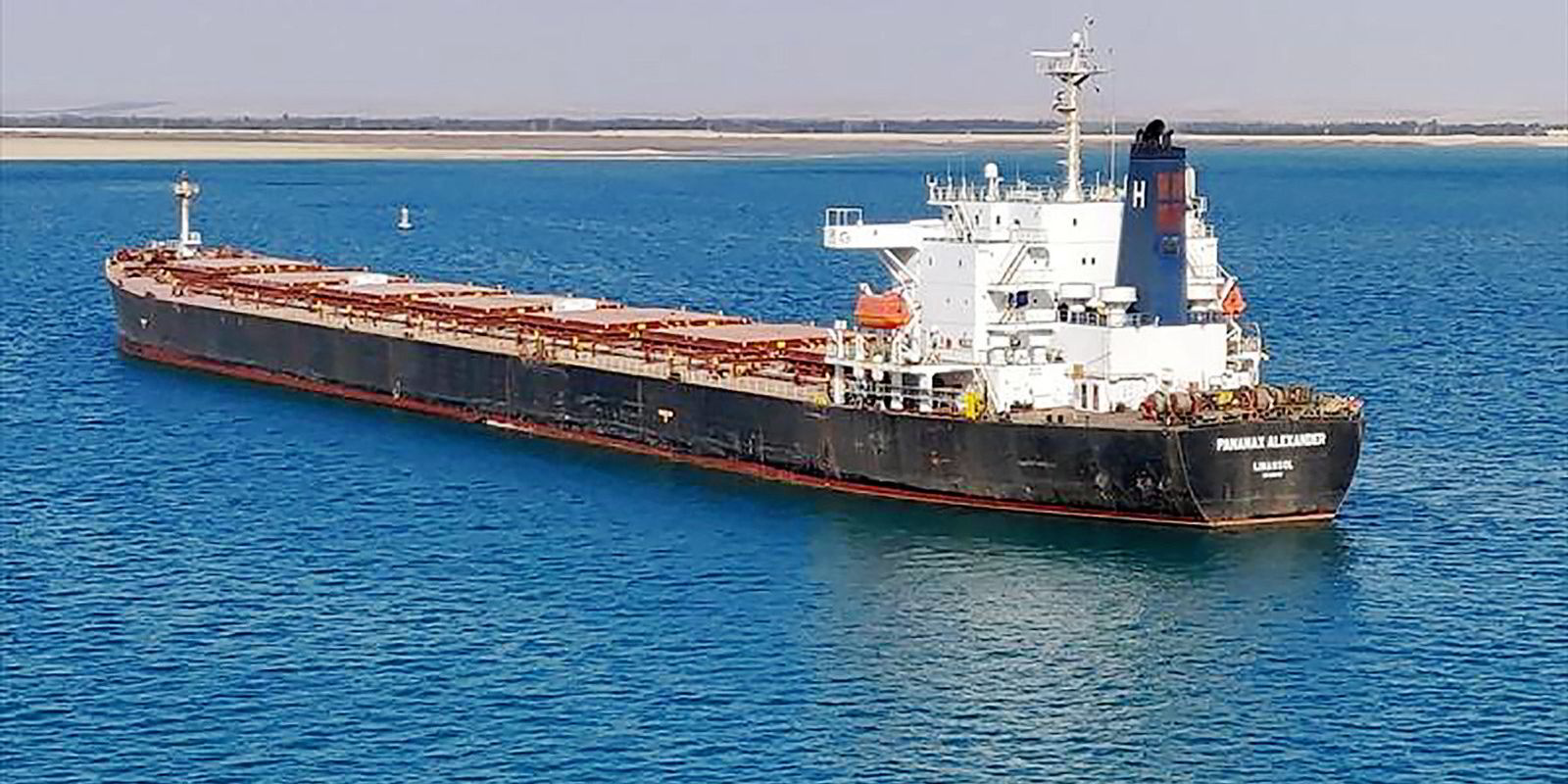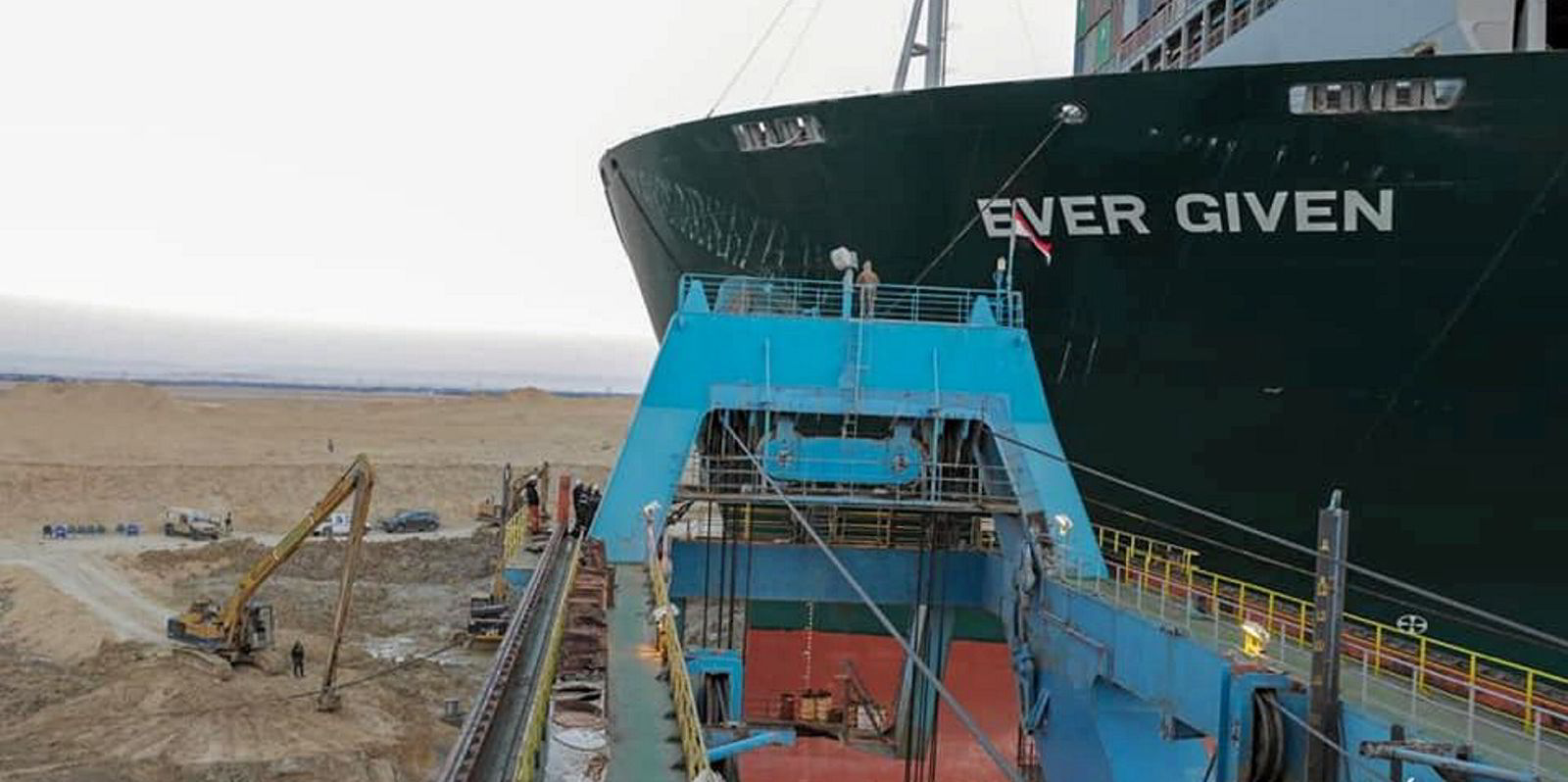A panamax bulker was involved in two collisions just 13 hours apart in the Suez canal after failing to moor properly after the first pile-up, a London judge has ruled.
The damaged 74,200-dwt bulker Alexander (built 2001) swung out from her moorings just as a convoy of northbound ships was preparing to pass on one of the narrowest stretches of the canal on 16 July 2018.
The NYK Line-managed, 9,040-teu containership NYK Orpheus (built 2008) nearly managed to stop before striking the Alexander but had been sailing too fast and had an inadequate lookout, said Mr Justice Andrew Baker in a ruling in London’s Admiralty Courts.
The Alexander, owned by Pacific Pearl, had been moored up at the side of the canal after its propeller and rudder were damaged in a three-ship collision the previous day.
The Suez Canal Authority gave permission for the convoy to pass the vessel and two tugs that were due to tow the damaged Alexander.
Two ships passed safely but the third was travelling too fast, causing the Alexander to break its mooring, according to documents. The stern of the vessel swung out into the canal and was hit by the Orpheus, the fourth vessel in the convoy, puncturing a cargo hold and ballast tank.
The judge ruled that the Alexander had been negligent in using only six mooring lines instead of 10 – and the crew failed to quickly raise the alarm when they realised that something was going wrong.
“Alexander’s imprudently inadequate mooring is the root cause of all that followed and was a serious failure of good seamanship on board that stricken ship,” the judge said in his ruling.
“Had Alexander been properly moored, she would not have broken free so as to become a danger to Orpheus.”
A court in 2020 found that the Alexander was 100% to blame for the initial collision after failing to stop in time after another vessel on the eight-ship convoy grounded after suffering mechanical problems.
Lawyers acting for the Alexander say the boxships in the convoy the following day should have waited until the bulker was towed away before passing through the canal.
They also claimed that the Orpheus and the ship that preceded it, the 14,026-teu NYK Falcon (built 2017), were travelling too quickly.
Mr Justice Baker said on Friday that the Alexander and the Orpheus should pay 42% of the damages to the other ship. He ruled that the Falcon played a lesser role in the collision but should pay 17% of the Alexander’s damages.
Passive seamanship
But he also raised concerns about the seamanship of the three vessels and found that officers were “passive and insufficiently in command” as they were “blindly” following the instructions of the Suez pilots.
Concerns expressed by the pilots about passing the Alexander were not passed on or discussed with the ships’ officers, partly because of language difficulties, said the judge.
Just eight minutes before the collision, one of the pilots on board the Falcon said: “No one must give instructions to vessels to pass like this, dangerous. If there is a little wind …”
Mr Justice Baker said other accidents could be “waiting to happen” in the canal because of what had come to light in the case of the Alexander.

The stretch of the canal gained international notoriety three years after the Alexander’s collisions when the 20,388-teu Ever Given (built 2018) grounded and blocked the waterway for six days, causing major disruptions to world trade.
A court hearing in Egypt last year was told that two pilots of the Suez Canal Authority (SCA) on the bridge of the Ever Given argued about the ship’s passage through the canal.





